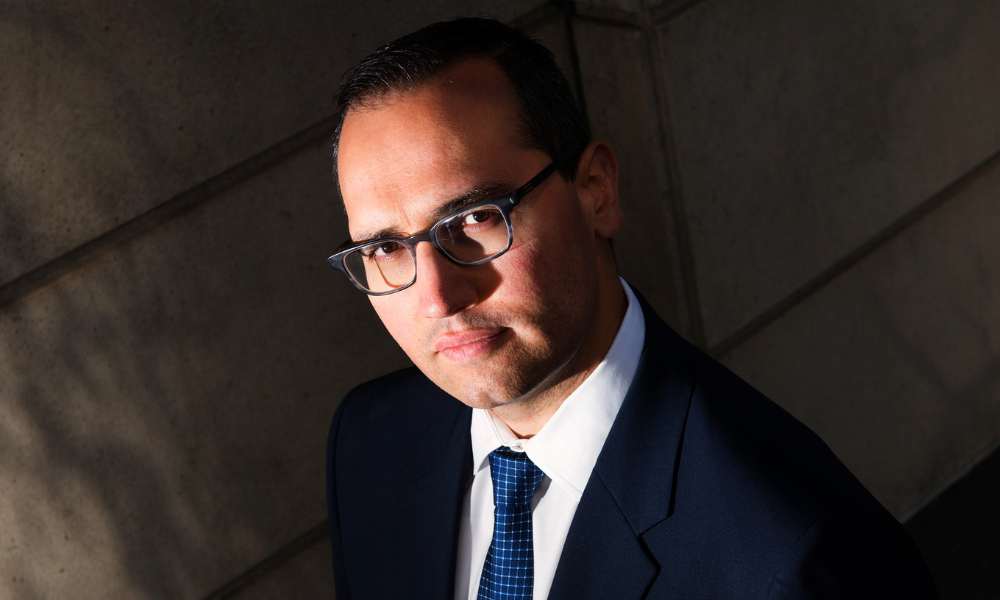Cases deal with when, under the Youth Criminal Justice Act, courts can sentence a minor as an adult

The Supreme Court of Canada will hear case two cases determining whether courts are appropriately applying SCC precedent and Youth Criminal Justice Act provisions that created a presumption of diminished moral blameworthiness for youth offenders.
At the end of November, the SCC granted leave to two Ontario criminal cases where courts convicted and sentenced youth offenders as adults.
“If our arguments are accepted, then it will fundamentally change how young people are sentenced for serious criminal offences in Canada,” says Nader Hasan, a partner at Stockwoods LLP and counsel for the youth on one of the appeals. “It's going to mean that it will be harder for the Crown to discharge that onus of showing that a child should be sentenced as an adult.”
In I.M. v. His Majesty the King, the appellant was convicted of first-degree murder for a fatal stabbing that occurred during a robbery of the victim’s home. The appellant was 17 at the time of the offence, and the Youth Justice Court granted the Crown’s application to sentence him as an adult. He got life imprisonment with ten years of parole ineligibility and lifelong parole. The appellant appealed the conviction and sentence, but it was dismissed at the Ontario Court of Appeal.
In S.B. v. His Majesty the King, the appellant was convicted of first-degree murder for a fatal shooting. The court sentenced him as an adult, and he received a life sentence with ten years’ parole ineligibility. The Ontario Court of Appeal dismissed his appeal.
In the 2008 SCC case, R. v. D.B., 2 S.C.R. 3, Justice Beverley McLachlin wrote that it is a principle of fundamental justice that “young people are entitled to a presumption of diminished moral blameworthiness or culpability flowing from the fact that, because of their age, they have heightened vulnerability, less maturity and a reduced capacity for moral judgment.”
In R. v. D.B., the 17-year-old accused killed the victim in a fistfight and pled guilty to manslaughter. At the time, an adult sentence was presumed to apply to a conviction for manslaughter under the Youth Criminal Justice Act (YCJA). The accused challenged the onus provisions in the YCJA’s presumptive offences regime under s. 7 of the Charter, the “right to life, liberty, and security of the person and the right not to be deprived thereof except in accordance with the principles of fundamental justice.” The onus provisions placed the burden on the young person to persuade the court that they should be sentenced as a youth rather than requiring the Crown to prove that the offence justified an adult sentence. The court found the provisions, under s. 72 of the YCJA unconstitutional.
Parliament responded in 2012 with YCJA amendments in the federal Conservatives’ Safe Streets and Communities Act. The legislation repealed the presumptive offence provisions, and the new test for the imposition of an adult sentence placed the onus on the Crown to satisfy the court that an adult sentence is appropriate if the Crown seeks one.
Under s. 72(1) of the YCJA, a youth justice court can impose an adult sentence if the Crown satisfies a two-part test. First, the Crown must rebut “the presumption of diminished moral blameworthiness or culpability of the young person.” Second, the youth sentence “would not be of sufficient length to hold the young person accountable for his or her offending behaviour.”
“Despite the D.B. decision, and despite the amendments to the YCJA, what we're finding is that the trial courts and certain courts of appeal across the country are not applying the new law,” says Hasan. He says that I.M. and S.B. will be the first time the SCC will assess whether the courts are appropriately applying its precedent.
“This is an appeal that is about restoring compassion into youth criminal sentencing, which has been sorely missing for the last several years now,” says Hasan. “We shouldn't routinely be sending children to jail for life. But that has been one of the effects of the way the current test gets applied in lower courts.”
“It has become too easy for sentencing courts to sentence young people as adults in serious cases,” he says.










